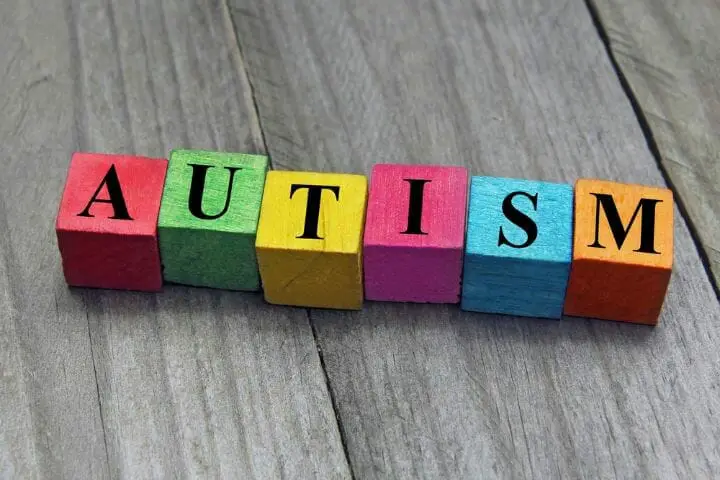In this article, we have reviewed the best probiotic for autistic child. If you are in a hurry, the table below gives a quick snapshot of the top ones.
|
What's good?:
It has twelves bacterial strains including Lactobacillus-Acidophilus, with a blend of three organic grasses.
|
What's good?:
Contains Lactobacillus rhamnosus GG, which reduces tummy problems, including diarrhea and occasional digestive upset. Meant for kids between one to three years of age.
|
What's good?:
These are Vitamin D gummies with probiotic action. They promote bone health as well as good digestion in children. It is a third part certified sugar free product which children can consume without any harmful effects
|
|
What could be better?:
A bit expensive.
|
What could be better?:
Some children may not like the sweet flavor.
|
What could be better?:
The container in which the gummies arrive is not BPA free.
|
Contents
Is your autistic child frequently facing gastrointestinal symptoms or bloating and gas? As per the statistics, 1 in 4 autistic children develops chronic gastrointestinal and digestive health issues[1].
According to the autism experts, there is a strong relationship between the brain and gut functions. An autistic child needs to consume probiotics to combat intestinal problems and issues related to digestion. As per experts, probiotics with Lactobacillus bacteria[2][3] help autistic children to improve their digestive health.
Therefore, I have suggested below some probiotics to improve the immune system of your autistic child. These probiotic supplements come with good bacteria which support the gut-brain connection of your autistic child.
Give a 10-minutes read to find out the best probiotic for autistic child.
Our Top Choice – Organic Liquid Probiotics – Kids Babies Toddlers
The MaryRuth Organics USDA Organic Liquid Probiotic, Digestive Health, Gut Health, Probiotics for Women, Probiotics for Men, Probiotics for Kids, Acidophilus Probiotic, Vegan, Non-GMO, 40 Servings is our top choice for the Best Probiotics for Autistic Child because of the following reasons:
- It comes with all the vital vitamins and nutrients to support the immunity of your kids.
- It supports all your digestive and gastrointestinal issues to help your autistic child.
- This probiotic is natural and does not contain any additional preservatives or flavor to support gut health.
- This health supplement contains all the organic ingredients that do not cause skin sensitivities.
- The plant-based strains are present in this supplement to improve your colon health and intestinal tract.
Best Probiotic for Autistic Child
#1 Organic Liquid Probiotics – Kids Babies Toddlers
This probiotic is our first choice because it contains all the natural ingredients to support natural gut health and immunity. Moreover, the plant-based ingredients also improve colon health. Therefore, it supports your autistic child.
Features and benefits
- Improves immunity: There are vitamins and nutrients present in this probiotic to support your child’s immune system.
- Reduces gastrointestinal issues: This probiotic helps to minimize the gas, bloating, and all other gastrointestinal symptoms to help your autistic child.
- Supports colon health: All the plant-based microorganisms and various strains help improve your colon and intestinal tract health.
- Natural: It does not contain any additive preservatives or gluten to support your gut health.
Why should you buy it?
It comes with all the plant-based strains to improve your gut health and gastrointestinal symptoms. Therefore, it is beneficial to your autistic child to build their overall growth. It is one of the best probiotics for an autistic child.
You may also like Best Headphones For Autistic Children And Adults
#2 Culturelle Kids Chewable Probiotic for Kids
This probiotic comes next in this list to remove the tummy troubles to relieve your kid from the discomfort. It does not contain harmful chemicals and comes in a chewable form. Thus, it improves the overall immunity of your child.
Features and benefits
- Improves digestive health: This probiotic helps maintain a good balance of bacteria to enhance your intestinal tract and digestive system’s function.
- Supports overall health: It comes with all the essential nutrients to improve your overall health and wellness to help your autistic child.
- Reduces tummy problems: It is a very beneficial supplement to reduce your little ones’ tummy issues.
- Builds overall growth: It has all the vital nutrients that support your baby to make the overall growth, especially in the early ages.
Why should you buy it?
It comes with multiple good bacteria to support the digestive and immune system. Thus, it not only reduces the tummy issues but also helps the overall growth of your little one.
#3 LiviaOne Daily Liquid Probiotics for Kids
This probiotic supplement comes with 10-different types of bacterial strains to support your intestinal tract health. Besides, it has all the ingredients to improve the digestive and immune system. This gut health improvement will help your autistic child.
Features and benefits
- Helps digestion: There are 10-variant bacteria present in this probiotic that help break down the consumed food into smaller particles. Thus, it helps indigestion.
- Supports the immune system: These probiotic supplements provide additional support to your autistic child to improve their immune system.
- Improves gut health: It has all the reasonable bacteria constraints to support your gut health. Thus, it reduces all the gas, bloating, and other gastrointestinal issues.
- Allergen-free: It is natural and does not contain any harmful chemicals or allergens to help your kid’s intestinal tract health.
Why should you buy it?
This probiotic supplement has all the bacterial microorganisms to support the digestive and immune system of your child. Besides, it does not add additive preservatives to help the overall gut health of your autistic child.
You may also like Best Book For Parents Of Autistic Child
#4 Carlson – Kid’s Super Daily D3
The primary ingredient of this probiotic is calcium that supports the bone health of the babies. Moreover, it comes with vitamin D that enhances muscle growth. It is also beneficial to make the heart function properly.
Features and benefits
- Bone health: This probiotic comes with a calcium supplement to help your bone health in the early stages of your child’s life.
- Improves heart: Daily consumption of this probiotic will give vitamin D supplements. It will help to function your seat correctly.
- Supports muscle: Vitamin D component not only helps your bone health but also reduces the muscle stiffness to make your child active and fit.
- Natural: Omega-3 fish oil, along with vitamin D3 liquid, helps the overall growth of your autistic child.
Why should you buy it?
Calcium and vitamin D are the main composition of this probiotic. These ingredients not only improve bone and muscle health but also maintain the heart.
#5 Mommy’s Bliss Organic Drops
This probiotic has come to serve the deficiency of vitamin D. It is suitable not only for newborn babies and toddlers but also for older babies. It will help to make the bone and muscles of your little one strong and healthy.
Features and benefits
- Supports bone health: Vitamin D is the primary ingredient of this probiotic. Thus, it helps to make the bone formation of your kid strong.
- Promotes growth: This probiotic is very beneficial to develop the overall development of your autistic child.
- Natural: It is natural and does not have additive preservatives and harmful chemicals to help gut health.
- Suits all: It has vitamin D that suits not only infants and toddlers; but also older babies.
Why should you buy it?
This probiotic contains vitamin D to support muscle and bone health. Moreover, it does not have preservatives or parabens to help your gut health.
You may also like Best Probiotics for Lactose Intolerance
#6 Garden of Life Kids Organic Vitamin D3 Gummies
Though this probiotic comes last in this list, it has vitamin D to help the bones and muscle formation. It does not contain preservatives or harmful chemicals to help your gut health. Moreover, it comes in orange flavor to make it your child’s favorite.
Features and benefits
- Helps bone health: It contains vitamin D to support your little kid’s bone formation and health.
- Natural: It does not have preservatives, sugar, or toxins to help the gut health of your autistic child.
- Supports overall health: There are essential nutrients and antioxidants present in this probiotic to enhance your child’s overall health.
- Improves immunity: Vitamin D also enhances the immune system to make your bundle of joy fit and active.
Why should you buy it?
It comes with vitamin D to enhance the overall health of your child. It makes the bones and muscle formation stronger to make the little one active.
Buyer’s Guide: Best Probiotic for Autistic Child
Strains
There are various bacterial strains present in the probiotics. As per the medical experts, probiotics that come with multiple pieces are more beneficial. Most probiotics have five to six songs current in them.
Probiotics that have Lactobacillus, Bifidobacterium come with at least 15 strains to help your child’s gut health. But when purchasing, must check the clinical validation of those strains.
Bacterial strains
Bacterial strains can enhance the clinical validation of the probiotic. You must pick some of these strains to improve gut health. Lactobacillus acidophilus, Bifidobacterium lactis, and Lactobacillus Plantarum are good bacteria present in a probiotic.
These strains will help to maintain a good gut health balance in your body. It will also enhance the clinical importance of probiotics.
CFU
CFU denotes how many bacteria form to make a colony. There are several flying and several staggering bacteria present in the CFU. As per the statistics, there are 100-trillion bacteria present in our body.[2]
Manufacturing date
Always remember, the bacteria present in the probiotic must be live. If the probiotic is unnamed, it is impossible to assume whether the strains are alive or dead. Usually, all the bacterial strains have at least one year to shelf life.
Also, you need to properly store the probiotic to avoid it from a hot or too relaxed atmosphere. It will help to enhance the shelf-life of the bacterial strains.
Form
The form of probiotics is another notable feature to consider. Probiotics come in three different shapes- liquid, capsule, or powder. The state of probiotic will decide how fast it will reach your gut.
Likewise- probiotics that come in powdered form are not much beneficial in the stomach. Therefore, they are unable to help your gut health. On the other hand, probiotics that come with extra coating can easily reach your gut.
You may also like At What Temperature Do Probiotics Die
Frequently Asked Questions: Best Probiotic for Autistic Child
Are probiotics covered under FSA?
Yes, FSA may cover probiotics. However, this is only possible if a medical professional certifies that your child needs probiotics for treating her gastrointestinal problems.
The doctor will have to provide a Letter of Medical Necessity (LMN) and details like what the probiotic will be treating and for how long. If the treatment is long-term, you need to procure the LMN again for every year you use the probiotics.
What supplements should I give my autistic child?
Apart from Probiotics, it would be best if you also supplemented the diet of your child through:
- Vitamins B 6 and 12 (meat, fish, eggs),
- Vitamin C (Citrus fruits),
- Vitamin D (sunlight and supplements),
- Magnesium and Omega-3 oils (Fish),
- DMG and TMG (liver and beans),
- Broccoli sprouts extract and NAC (protein-rich foods).
Do probiotics start working immediately?
If you are suffering from minor issues, diarrhea may get relief within two days of consuming probiotics. But if you are suffering from chronic symptoms, it may take two weeks or one month to get the results.
Which time is better to take probiotics?
It would be best to take the probiotics in the morning before taking breakfast to get a fast result. It will help you to reach the probiotics as fast as possible. Therefore, the medical experts suggest taking these probiotics either in the morning or night before going to bed.
Should you take probiotics on an empty stomach?
It would be best to consume some probiotics on an empty stomach, whereas some need to be consumed with food. So, it is better to take the advice of your medical expert to get the best result.
Can probiotics cause you to gain weight?
Some probiotics can cause obesity or weight gain. But it does not apply to all probiotics. Some can also cause weight loss.
What other problems do autistic children face?
Apart from digestive discomfort, children on the ASD spectrum often face social anxiety and have a marked reaction to excessive sensory inputs such as bright lights or high-pitched sounds. That is why they often face difficulty sleeping as well. Tent beds might be a useful option to reduce this problem. We have a separate article on how to help children with autism sleep better.
You may also like Why Are Probiotics So Expensive?
Conclusion
A child who is suffering from autism may face gastrointestinal or gut issues. There are some probiotics available that can help to combat these issues.
In our opinion, the MaryRuth Organics USDA Organic Liquid Probiotic, Digestive Health, Gut Health, Probiotics for Women, Probiotics for Men, Probiotics for Kids, Acidophilus Probiotic, Vegan, Non-GMO, 40 Servings is the best probiotic for autistic child among the various options that we have considered. It is because it comes with all the vital nutrients and vitamins to reduce gastrointestinal issues. Also, it does not contain any harmful preservatives to help your gut health.
The Culturelle Kids Chewable Daily Probiotic for Kids, Ages 3+, 30 Count, #1 Pediatrician-Recommended Brand, Natural Berry Flavored Daily Probiotics for Digestive Health, Oral Care & Immune Support is our next best choice. It is because it can reduce all your tummy issues to help your digestion.
Suppose you are looking for a value for money option. In that case, you can also consider the Garden of Life Kids Organic Vitamin D3 Gummies with 800 IU (100% Daily Value) for Strong Bones, Teeth, Brain & Immunity Non-GMO, No Gluten, Vegetarian, Sugar Free, Orange Flavor, 60 Servings. It comes with all the features in an affordable price range.
While we make every effort to provide updated and correct information, the advice given in this article and website should not be construed as “medical advice.” Please consult with your physician or medical practitioner before using any probiotics. Each individual may have unique issues, and your medical practitioner is the best person to decide the best probiotics for autistic child in your case.
References:
[1] Autism and digestive health
[2] What to look for in a probiotic
[3] The Promising Role of Probiotics in Managing the Altered Gut in Autism Spectrum Disorders











